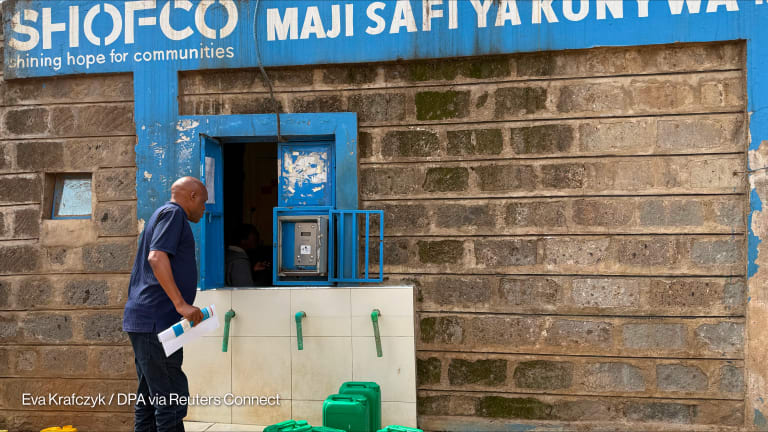
I’ve been working in the development and humanitarian sector for over 20 years in Africa, where I am from, in the Middle East, America, and in the United Kingdom, where I studied and now live. Every few years, a new buzzword around decolonizing aid enters our lexicon and for a while, we might feel good about ourselves.
Localization is currently the trend but trusting local leadership is more important than simply shifting resources.
What’s concerning is whether international donors truly value local talent and knowledge as much as they do from their countries. Do they really believe that development can be locally led — or is this just another attempt at implementing a global north vision more cheaply and with less risk? If that is the case, localization will not work.
For our sector to look at this effectively, we need to start asking questions such as: What does localization mean for those local partners in the countries we work in?
An example: In conflict-affected areas, Western-based organizations tend to spend a lot of money keeping their expatriate staff safe — through hostile environment training and security infrastructure. I’ve seen some INGOs with a security setup comparable to foreign embassies. Yet local partner organizations and some locally recruited teams operating in the same dangerous areas are often expected to work without similar security infrastructure or relevant training. That’s just one instance of the hypocrisy of localization.
The sad reality is for some organizations, localization means local partners adhering to global north norms and ways of working. If we don’t value local partners’ input into reporting templates and program design or allow them to report in their own languages, then it is still the same top-down approach that it’s always been.
Donor requirements should reflect different cultures and ways of working. We must truly believe that safeguarding program participants or anti-corruption efforts alongside grant deliverables will be achieved not because head office came to enforce it, but because local staff and partners are just as mission-driven and accountable. If not, local organizations essentially become lesser paid agents to do whatever the United Nations or the U.S. Agency for International Development want them to do.
Localization is currently the trend but trusting local leadership is more important than simply shifting resources.
—Like everyone else in our sector, my organization is on a mission to confront power imbalances. For the last 30 years, Women for Women International has helped more than half a million women survivors of war rebuild their lives. WfWI has always understood the importance of local knowledge and diversity. Instead of sending expatriate staff to the countries in which we operate, we have always employed local staff with direct connections to the women we serve.
Now, we’re also trying to remove the top-down approach to be not only locally led, but also for local staff to significantly shape our international strategy and policies — which is why we talk about 'internationalization rather than localization, bringing local voices to shape global policy.
For example, 15 years ago, staff in our Nigeria country office told us that to promote women’s rights in the community, engaging men as allies was key. They piloted the first men’s engagement program, which we now offer in most countries we serve.
We’ve established a Global Support Center so that staff and operations are interconnectedly dispersed in and around the regions where WfWI works, not concentrated in the United States., Europe or any one country. We’ve invited our local heads of office to join the decision-making table and be an equal part of our leadership teams. Most of our funding is unrestricted so we’ve been able to adapt our programs based on what the women we serve and local teams say they need.
Another positive step: We’ve just started implementing a global travel policy at WfWI whereby all staff, regardless of location, are entitled to security awareness training if they must travel as part of their work. It’s something we should have done much sooner.
We are still on a journey and it is not quick or easy. The culture shift that is needed around transforming our organization is vast. All of us find it hard to break out of the old ways of working and power dynamics.
However, when I joined WfWI, I said to myself: “Here is an organization that has the passion and commitment to continue transforming the sector and putting the women we serve at the heart of decision making and program design.” As chief operating officer, it’s now down to me to not only promote this vision and culture, but also to see how it impacts the bottom line of the business. I’m looking forward to being part of this journey.
Search for articles
Most Read
- 1
- 2
- 3
- 4
- 5








